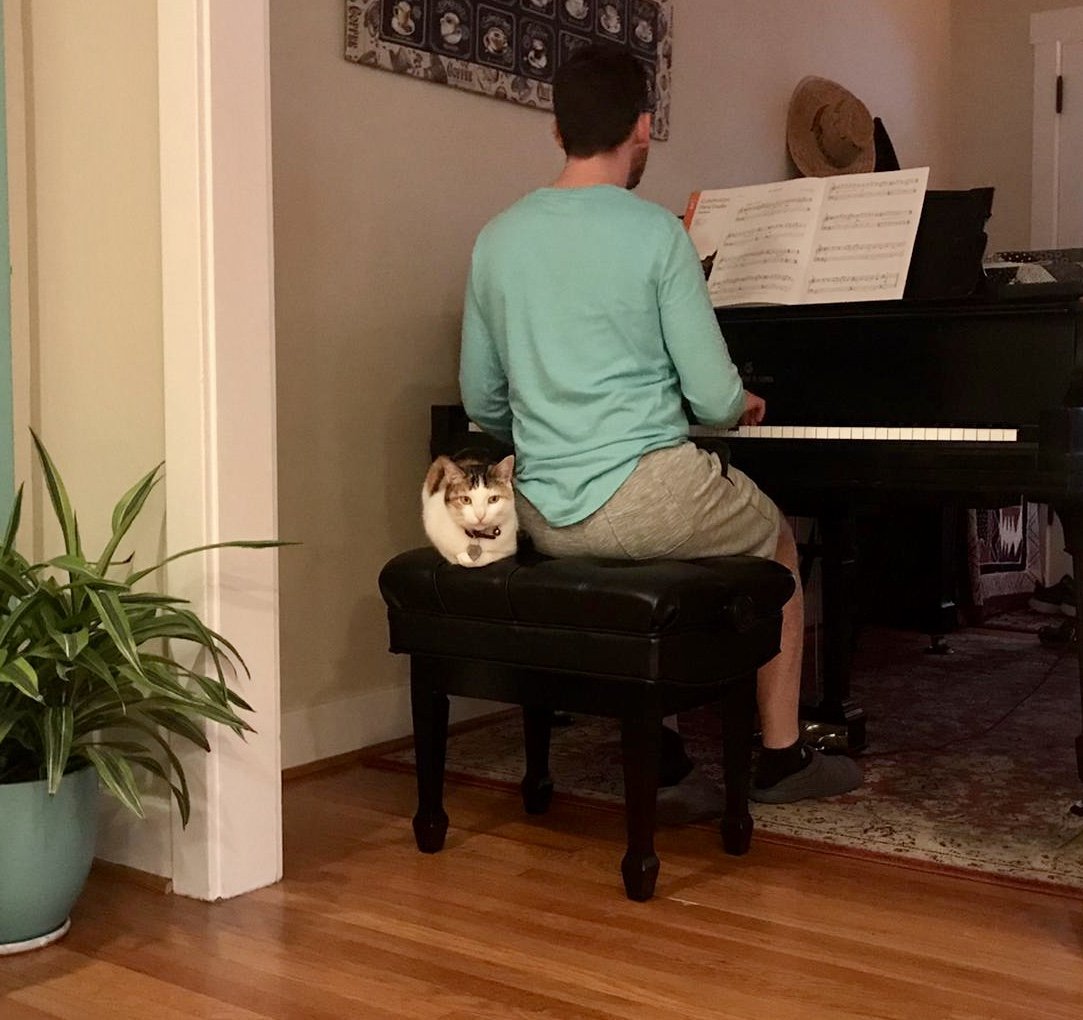I believe that teaching is a calling, and that music study enhances all life and all learning. As a pianist and music educator, I have a powerful opportunity to positively influence and inspire my students to learn effectively and to take life-long pleasure in the arts. To this end, I do my utmost to make every aspect of my instruction as meaningful as possible to every student while respecting all students as artists and individuals, regardless of their level at the piano. A well-rounded and holistic music curriculum is at the core of my teaching philosophy. This includes an emphasis on music reading skills, aural development, technical training, repertoire study, music theory, creative activities, and more. Effective teaching occurs when the student understands the purpose and enjoys the process of learning. Creating a meaningful experience in every music lesson is the most important aspect of my teaching philosophy.
In support of this philosophy are the following:
Organization is paramount to the effective use of lesson time. I take great care to prepare lesson plans and have fashioned my studio into a disciplined learning environment. Discipline is one of the key components to any successful musician and the pursuit of musical excellence.
I empower students with the knowledge and insight to practice productively outside of lessons.
I believe in the value of cooperative and discovery learning, and include these in my instruction.
I consider it essential to train both the ear and the eye in music study. My students learn to read music notation (both traditional and lead sheets) and play by ear effectively at the piano.
Lessons should not be all work and no play. Music is a source of delight and pleasure; it is therefore important that my students have fun in every lesson.
Performing music can serve as an effective outlet for building confidence and fostering personal growth. I encourage my students to perform regularly and to participate in meaningful assessment programs such as the Royal Conservatory of Music (RCM) Certificate Program.
I believe it is beneficial to explore various types of music, including Western Art Music and Vernacular styles. I incorporate repertoire of multiple styles, historical eras, and genres and present pieces in their historical and/or social context by considering elements of style and informed performance practice.
Music study provides an opportunity to develop important analytical skills. To this end, music theory is an important component of my music curriculum.
While playing a musical instrument is both an artistic and intellectual endeavor, it is also a physical activity. I teach my students to respect their bodies and to view themselves as part-athlete. As such, I help my students achieve a healthy technical facility focused on physical freedom, ease of movement, and resilience.
Providing creative opportunities is vital to developing well-rounded musicianship. I therefore include activities focused on music creation such as improvisation and composition as part of my music curriculum.
As music educators, the first place we need to cultivate our audiences is among our own. I attend performances by my students and encourage them to attend my performances, and other concerts.
The following guidelines inform my relationships with students:
I make an effort to be warm and affable with my students and to treat them with respect. My students find me highly approachable; they are not afraid to make a mistake or to ask me a question.
I remain kind but professional towards my students at all times. I set an example of the considerate and respectful behavior I expect my students to show their peers and me.
I recognize the varied learning preferences of different students and adjust to each student accordingly.
All students should be treated fairly and assessed as such. I measure, acknowledge, and reward both effort and ability as justly as I can.
I encourage differences of opinion and acknowledge differing valid points of view. When there is more than one solution to a problem, I use this opportunity to implement ideas and suggestions from the student. My students constantly surprise me with new ideas.


